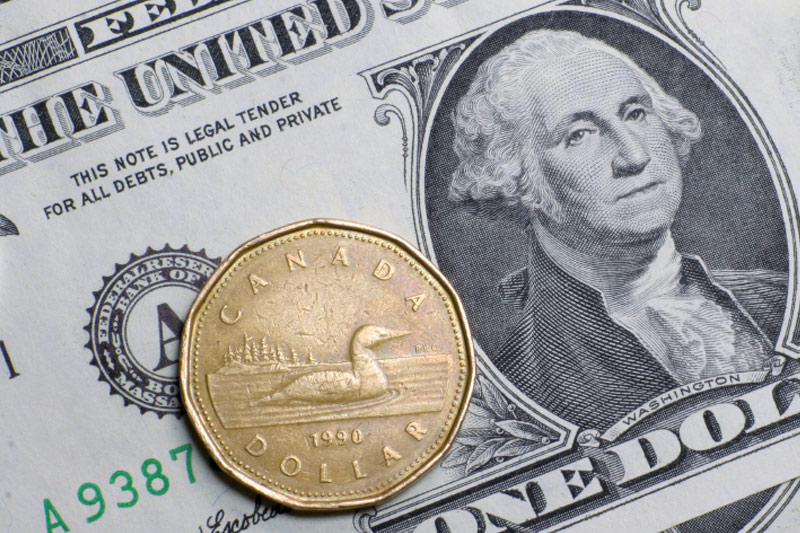Investing.com - The U.S. dollar was little changed against the Canadian dollar on Tuesday after data showed that Canadian manufacturing sales rose more than forecast in January, while mixed U.S. data on housing and inflation indicated that the economic recovery remains sluggish.
USD/CAD briefly touched session lows of 1.1026 following the release of the upbeat Canadian data, before pulling back to 1.1053, 0.02% higher for the day
The pair was likely to find support at 1.1010 and resistance at 1.1106, Monday’s high.
Canada’s dollar was boosted after official data showed that domestic manufacturing sales increased by 1.5% in January, beating expectations for a 1% gain.
In the U.S., data on Tuesday showed that the annual rate of inflation in the U.S. slowed to 1.1% in February from 1.6% in January. Analysts had expected the annual inflation rate to decline to 1.2%.
Month-on-month, U.S. consumer prices rose 0.1% in February, in line with forecasts.
Separately, the Commerce Department reported that the number of building permits issued in the U.S. rose to a four-month high in February, rebounding after a sharp drop in January.
The number of building permits issued last month jumped 7.7% to 1.018 million units following a 16.8% fall in in January, as a result of severe winter weather.
But, U.S. housing starts fell 0.2% last month to hit a seasonally adjusted 907,000 units, disappointing expectations for an increase of 3.4% to 910,000 units.
Meanwhile Tuesday, market sentiment recovered after Russian President Vladimir Putin said that Russia isn't seeking "a partition of Ukraine", signaling that Russia's moves in Ukraine would be limited.
The speech came one day after President Putin recognized the results of Sunday's referendum in Crimea, which saw a majority of voters chose to split from Ukraine.
The European Union and the U.S. have declared the vote illegal and imposed sanctions.
Elsewhere, the loonie, as the Canadian dollar is also known, was slightly higher against the euro, with EUR/CAD down 0.10% to 1.5369.
The euro slid earlier after a report showed that German economic expectations deteriorated in March, as concerns over the crisis in Ukraine weighed.
The ZEW Centre for Economic Research reported that its index of German economic sentiment fell to 46.6 this month from February’s reading of 55.7. Analysts had expected the index to decline to 53.0.
